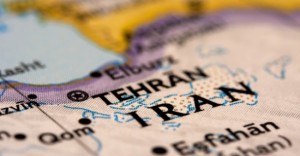Shadow banks may control about 25 to 30 percent of the word’s financial system. They may be about 50 percent of all banking assets in the world. I say may in both of those sentences because it is hard to tell how big this financial sector is. The United States may [...]]]>
 Shadow banks may control about 25 to 30 percent of the word’s financial system. They may be about 50 percent of all banking assets in the world. I say may in both of those sentences because it is hard to tell how big this financial sector is. The United States may make up about 40 to 50 percent of all shadow banking. However, shadow banking is spread throughout the world.
Shadow banks may control about 25 to 30 percent of the word’s financial system. They may be about 50 percent of all banking assets in the world. I say may in both of those sentences because it is hard to tell how big this financial sector is. The United States may make up about 40 to 50 percent of all shadow banking. However, shadow banking is spread throughout the world.
Shadow banks are not as regulated as regular banks. They also go about gathering capital for lending in a different way than regular banks. They often securitize assets such as commercial and residential mortgages, corporate bonds, consumer loan packages, and the like. Shadow banks also find other assets and derivatives of those assets to back up their securitized debt instruments. Many use US Treasury bills and other sovereign debt (the debt instruments of many nations and their equivalent of Treasury bills, for example) to act as risk mitigation and collateral in the “loan” making process.
Shadow banks also rely on something called the repurchase (repo) markets to liquefy debt and other assets in the short run – even though most of these assets are long run ones, like mortgages and long term bonds. Simply put, repos are a way to quickly pay off short term debts and also to get some of the debt off the books of the shadow banks either overnight or even for longer periods.
Ok, this is all very complicated. Frankly, for the shadow banks that complexity has protected them over the years. It has also led to some very big crashes because the people who should have understood what was going on did not. That includes many governments and even some of the leadership of the shadow banks themselves.
So what we have is a large massive part of the world financial system basing its capital on sliced and diced assets with sometimes questionable risk calculations and even sometimes questionable valuations of the assets. How much might it be? How does $40 trillion dollars sound?
The valuation of the assets could be a real problem if there is a war with Iran that gets out of hand and leads to significant damage to oil and gas fields and facilities in the Gulf. If energy prices spike and spike again for the short run, the market could bear that. If the oil and gas prices spike and stay way up in many markets then we have a much bigger problem.
One of the mechanisms of asset destruction in the shadow banking system can be a huge increase in energy prices followed by recessions or worse in many places, including in the already fragile EU, China and the US. Other commodity and goods prices will be affected as well.
Many shadow bank assets are heavily leveraged. Does this sound familiar? Leveraged shadow bank assets took down the US and part of the world economy when the housing market went bust in 2007-2008.
Many shadow banks are heavily into derivatives and even derivatives of derivatives. If the underlying assets of the derivatives collapse due to falling economies then the derivatives collapse along with them.
It is quite possible that under some war and conflict scenarios attached to scenarios of oil and gas prices that the economic impacts of a protracted and quite damaging war with Iran could be magnified well beyond the normal way this is considered.
Shadow banking is huge. It needs to be considered in calculations about military conflict. The losses could be gigantic on the financial markets.
Some shadow banks might benefit from war if some of the sharpies in the shadow banks have already set up derivatives and options as hedges betting on a war. They cash in if the war happens.
Either way some people in the shadow banks could lose. Some could win.
The regular folks lose. The top guns in the shadow banks will drive their Ferraris. The regular people may end up selling apples.
You see, a war with Iran now would be very different than if it happened in 1979. Back then the shadow banking system was tiny. Derivative markets were tiny compared to what they are now. The leverage and risk inherent in sometimes unstable sliced and diced assets in the tens of trillions was just not there.
Is this something to think about? I surely believe so. I am going to look much more deeply into this situation and hope to have more to write about it to clarify and educate, hopefully before possibly catastrophic events take place.
Policy conclusion: take great care and do your homework on the realities of the risks within the world economy before stepping off the cliff toward a potentially very costly war.
To read more about shadow banking try:
- - Casting more light on shadow banking
- The run on shadow banking and a framework for reform
- The Shadow Banking System – Survey and Typological Framework
I am hearing the drumbeats of war again. They sound so much like the drumbeats of 2002 that I have to wonder whether the old drummers have been brought out of storage to play the same music to a new audience.
This time the drums are directed at Iran. Surely, [...]]]>
 I am hearing the drumbeats of war again. They sound so much like the drumbeats of 2002 that I have to wonder whether the old drummers have been brought out of storage to play the same music to a new audience.
I am hearing the drumbeats of war again. They sound so much like the drumbeats of 2002 that I have to wonder whether the old drummers have been brought out of storage to play the same music to a new audience.
This time the drums are directed at Iran. Surely, the Iranian leadership has not done their people any good with their arrogant defiance and bellicosity in the face of potential massive firepower from the other side. They have also made the situation much worse with some of their comments about Israel, the United States, NATO and others. The Iranian outreach to Hugo Chavez and other unseemly dictators has not helped their cause. Nor has their cause been helped by their interferences in Bahrain, Syria, Lebanon and more. Threatening to close the Strait of Hormuz ratcheted things up. Having fast boats play chicken with warships that could take out the entire coastline of Iran has not been a smart thing to do. Being ambiguous and cagey about their nuclear program gives a lot of verbal ammunition to their enemies.
Indeed, the situation does not look good. The increasing storms in Syria, Iraq, Lebanon, northern Saudi Arabia and Southeastern Turkey could whip up even more trouble in the region.
What are the drums calling for? It seems they are calling for ostensibly tougher sanctions on Iran. However, some of them are calling for the sanctions to be placed in the dustbin of history followed by an attack on Iran.
What do these drums tell us about what might happen after the sorties have attacked Iran? Not much. That part of the percussion piece is almost absent, much like “after Saddam” was barely considered since war on Iraq was seen as a “cakewalk”, “costing $100 billon dollars at most”, and a “slam dunk”.
A strike on Iran will not stop at the strike. Iran will respond. It may even respond globally, according to statements from elements of Iran’s leadership. They could easily respond in Iraq, Syria, Lebanon, Bahrain, and beyond. They could have their sleepers go kinetic in Europe, Latin America and more. They could counterstrike on the oil fields and facilities of other Gulf countries.
Iran could help turn the Strait of Hormuz into a battlefield even if they could not shut it down physically. The price of oil could skyrocket to $250 to $350 per barrel. The world could be plunged into a deeper recession than what happened after 2008.
The world economy is fragile as it is. Ask any Greek, Spaniard, Portuguese, Irish person or Italian. Ask anyone in the US who knows about the potential fiscal cliff, and the possible follow-on recession.
The scenarios of this war could work up massive oil price spikes that could end up producing “new” oil price levels in the medium runs if major facilities and fields are significantly damaged. Then there is the potential nuclear fallout from the attack on Iran that so few want to even whisper about, or even know about.
The drums I am hearing are calling for war. Those playing them don’t seem to want to think about what is on the other side of an attack or, even worse, what a war that protracts and pulls others into it could look like.
Sunni-Shia tensions point to the chances that many could be pulled in. Other factors on the ground in Iran, other Gulf States, the Eastern Mediterranean and more point to a potential disaster than many could hardly imagine at this moment.
How many of those who pushed for war imagined that we would still be in Afghanistan today? Did they predict then, the thousands of lives that have been lost and damaged in Iraq?
War is uncertain. War is much more about fog, blood, pain and shattered lives than armchair strategic thinking. War is about people. It is about young men and women being put in harm’s way and coming back damaged, or not coming back at all.
I am not a pacifist. Sometimes wars are needed. However, I am someone who after decades of studying, living in, working in and worrying about the Middle East and North Africa, can see a potentially massive storm of epic proportions resulting if more missteps are taken.
I cannot sit quietly and idly as the storm builds.
If I don’t speak and write what I believe is the truth to power then I am a failure. I do not intend to be so.
- Paul Sullivan is an internationally recognized expert on security issues including energy security, water security and food security in the Middle East and North Africa. He is an economist by training and a multidisciplinary public intellectual by choice. He is an Adjunct Professor of Security Studies at Georgetown University.
]]>